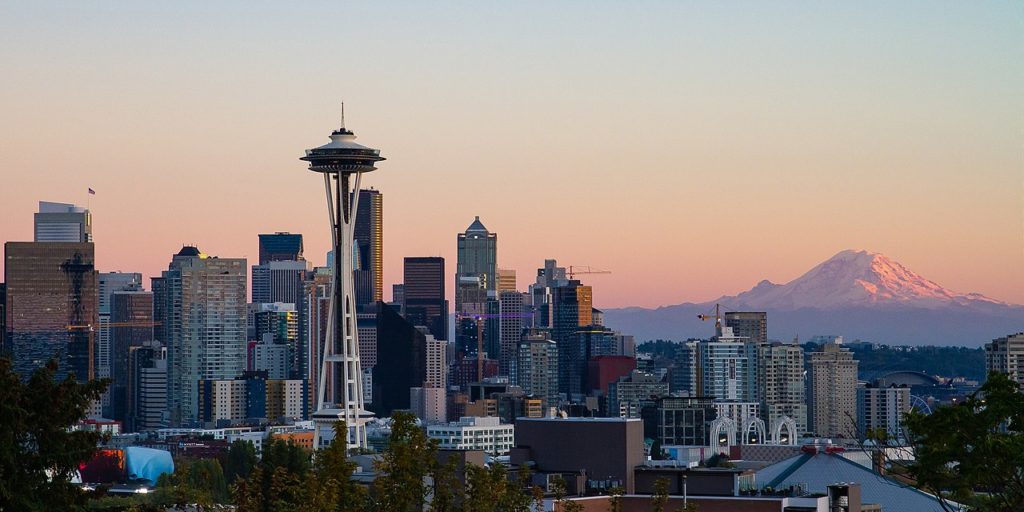When you think of Seattle, what comes to mind?
A recent article in Seattle Business Magazine claims that Seattle needs a branding boost. If you think about it, we use mostly nouns to describe our city, but where is the action? We love to talk about the companies that are based here, the local attractions, or even the weather. But where are the adjectives or verbs? Portland is weird. What happens in Vegas stays in Vegas. Los Angeles is the City of Angels. But what exactly is Seattle?
A recent study found that Seattle isn’t really sleepless after all, so we can cross that off our list. And despite claims that Seattle is dying, we’re going to have to disagree on that front as well. People love to call us the Emerald City thanks to our vast greenery, but it’s actually more of an unofficial nickname.
The fundamental issue with the city’s lack of branding is that Seattle isn’t in control of the narrative. But sometimes, not having control of your brand can be a good thing. Take Pabst Blue Ribbon as an example.
PBR was widely popular in the 1970s but sales steadily declined over the next few decades. That is until it started making a surprise comeback in Portland, Oregon (because of course, it was Portland) in the early 2000s. Pabst Brewing Company, PBR’s parent company, hadn’t changed anything about the beer—not the recipe, the branding, or the logo. As it turns out, people were buying the beer because it wasn’t being advertised to them. This new era of customers felt that they held the buying power. And now, almost two decades later, PBR’s sales continue to increase, having more than doubled thanks to their lack of marketing over the years.
But the problem is Seattle is not a product. We are a city and we aren’t trying to make a comeback. As the fastest growing city in the United States, we need to be telling our own story. And if we’re not writing our own narrative, then who is?
This problem isn’t unique to Seattle. In 2004, Amsterdam wanted to take control over its image. Tired of being plagued with a reputation for sex, drugs, and rock-n-roll, the city commissioned its “I Amsterdam” campaign to position itself as a premier European tourist destination. The campaign aimed to be a slogan for both the city’s residents as well as the city itself. It was about developing a sense of community and pride. And it appears that it worked—tourism numbers are up, and Amsterdam is considered one of the top five European cities based on brand strength and cultural assets.
One thing Seattle can take away from both PBR and I Amsterdam is consistency. As a city that is steadily growing, maybe it’s time for us to embrace our rapidly changing landscape and position ourselves as a city that thrives on change. Whatever Seattle chooses, let’s choose it soon. After all, the hand that holds the pen writes the history.

